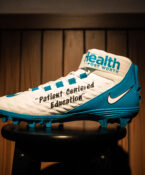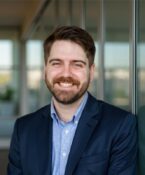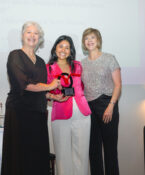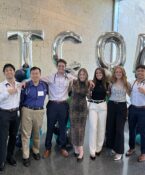Preventing cell aging could reduce age-related illness
It’s inevitable. Everyone ages. Aging typically increases the chance of disease. Dong-Ming Su, PhD, associate professor of Molecular Biology and Immunology, is researching ways to prevent or delay the onset of diseases related to immune system aging.
The National Institutes of Health (NIH) have provided more than $2 million in support to Su to investigate molecular changes in the thymus, a gland located in the front of the neck that regulates the immune system. The thymus plays an active role in the aging of T cells, white blood cells that attack cells infected by bacteria, viruses or other disease causing organisms.
T cells are part of the adaptive immune system, which is composed of highly specialized, systemic cells and processes that eliminate or prevent pathogenic challenges and can prepare itself for future challenges. Influenza, cancer and rheumatoid arthritis are all examples of diseases caused from decreasing T cell function.
The thymus shrinks and fat begins to surround it, which prohibits the thymus from producing enough new T cells and fighting disease. Cells in the thymus can be divided into thymic stromal cells and hematopoietic stem cells. Su’s research team found that the stromal cells age more rapidly than the stem cells, which challenges traditional thinking.
"We are working to find a way to rescue the stromal cells from aging and make the microenvironment younger," Su said. "If the stromal cells do not age as quickly, the thymus will not shrink as quickly and would be able to produce new T cells."
Su said this could be accomplished through gene regulation, known as gene therapy, or through a stem-cell based therapy. While still in the early stages of lab research, Su said that gene expression could be stimulated through a simple injection.
"Although we are in the early stages of this research, this could ultimately change lives," Su said. "The consequences of this research could potentially increase life span and improve quality of life for the elderly."






Social media